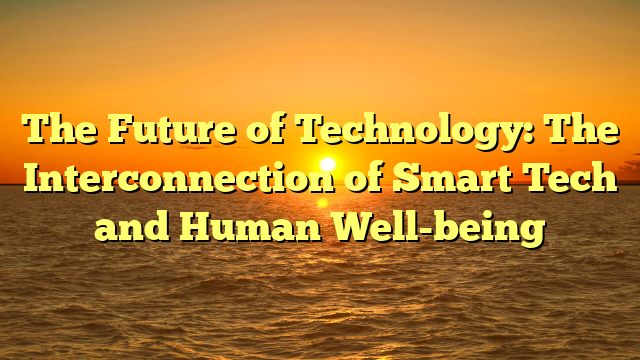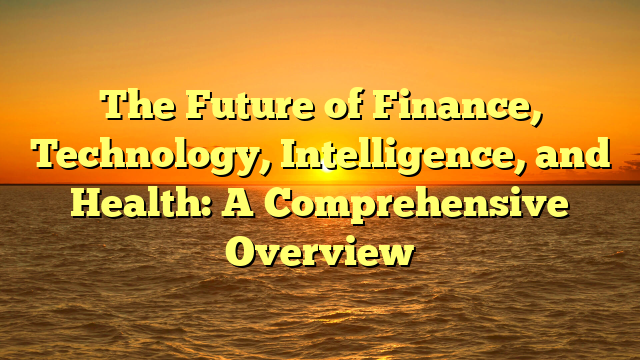With the rise of digital transformation, the integration of key sectors such as finance, health, AI, and tech is becoming increasingly apparent. This article will explore how these domains merge and how they collectively drive progress.
1. Financial Technology (FinTech): Revolutionizing the Economy
The innovation in financial services is reshaping global economic models in dramatic ways.
Users require fast access to their bank accounts. With mobile banking apps like PayPal, sending funds can be done in seconds.
Cryptocurrency are gaining popularity as new financial instruments, offering increased security.
FinTech also enables AI-powered recommendations. Platforms like Robinhood use algorithms to help users make informed investment choices.
At the same time, businesses use FinTech for financial forecasting. Predictive analytics tools analyze spending trends to improve profit margins.
2. Technology’s Impact on Healthcare
Digital innovations are revolutionizing healthcare delivery.
Smart devices like Fitbit track everything from oxygen levels to fitness goals. This empowers users to take proactive health steps.
Virtual health consultations has made healthcare more efficient. Especially during slot demo pg -19 pandemic, patients and doctors embraced virtual appointments via apps.
AI-powered diagnostics help physicians detect diseases faster and more accurately. Tools like AI-based radiology systems have shown tremendous potential in neurological disorder management.
3. The Rise of Artificial Intelligence Across Industries
Artificial Intelligence (AI) is no longer just a buzzword. It plays a transformational role in sectors ranging from education to logistics.
In finance, AI helps with credit scoring. Neural networks analyze banking patterns to detect unusual activity in real-time.
In healthcare, AI enhances drug discovery. Researchers use AI to simulate drug reactions. This reduces time and costs in bringing life-saving drugs to market.
In technology, AI drives autonomous vehicles. Self-driving cars from Waymo use AI to improve traffic safety. AI also powers assistants like Siri, making everyday life easier.
4. Smart Health and Intelligent Finance: The New Synergy
Smart technologies are merging personal finance and well-being.
Poor financial decisions often lead to stress, which in turn impacts physical health. Conversely, strong financial planning provides access to quality healthcare.
Apps now combine financial advice with health metrics. For example, platforms like Wellth offer cash-back for meeting fitness goals.
Insurance companies also use tech to adjust premiums based on lifestyle choices. This incentivizes exercise and helps reduce healthcare costs.
5. Challenges and Ethical Considerations
Despite the many benefits, there are complex challenges.
Information misuse is a key concern. As users share more sensitive metrics, companies must ensure encryption.
There are also concerns about algorithmic discrimination. If AI systems are trained on biased data, they can marginalize groups.
Moreover, overreliance on technology may create dependency. For example, if people fully trust AI financial advisors, they may miss important market nuances.
6. The Road Ahead: Innovation with Responsibility
In the coming years, the convergence of finance, tech, AI, and health will intensify.
Global institutions must collaborate to create fair regulations. Education is crucial—people need to understand both the power of emerging technologies.
AI-aware financial planners will become the norm. Tomorrow’s leaders must navigate a world where money, machines, minds, and medicine intersect.
—
Final Thoughts
The fusion of our most vital systems is not just a trend—it’s a redefinition of progress.
Whether it’s wearables tracking our health, these innovations offer hope.
But with great power comes a duty to protect rights. It’s up to all of us to ensure that no one gets left behind.
The Future of Technology: The Interconnection of Smart Tech and Human Well-being


